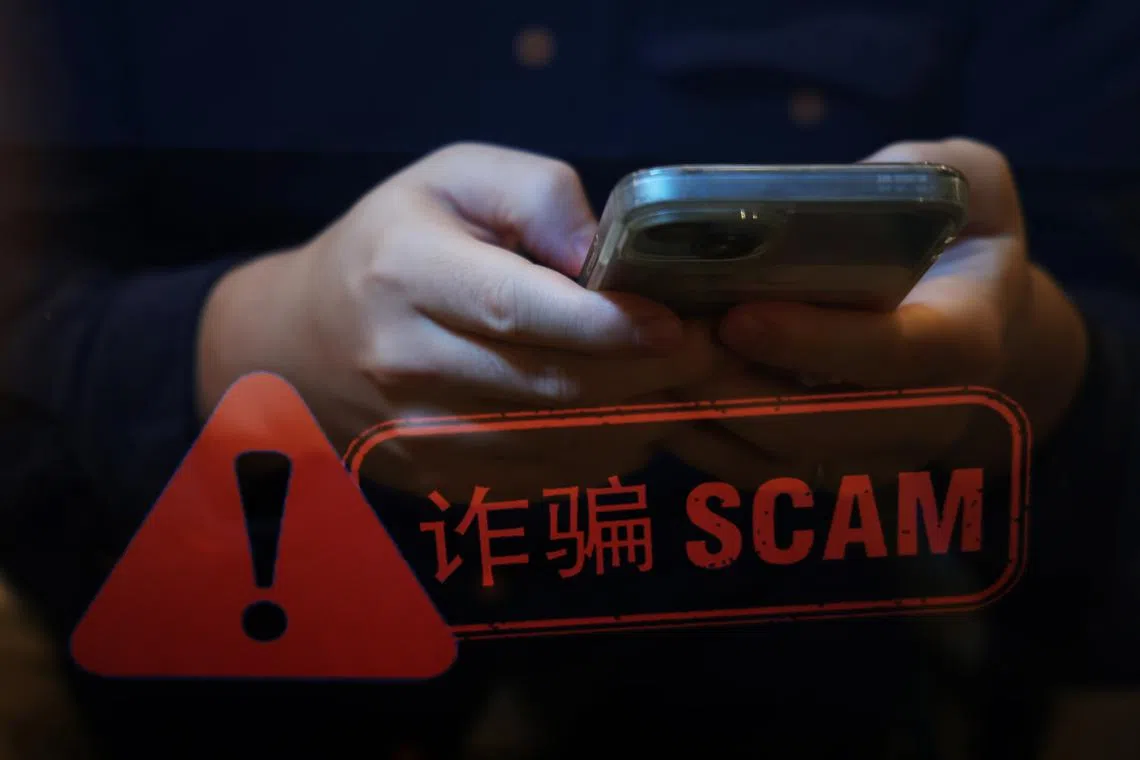China captures scam centre suspect with Thailand’s help
Sign up now: Get insights on Asia's fast-moving developments

China's Public Security Ministry said the police would step up their efforts to crack down on the scam centres.
PHOTO: LIANHE ZAOBAO
BEIJING – The police have detained a man suspected of involvement in the case of a Chinese actor who was duped into travelling to Thailand for a film job and then trafficked to Myanmar, said China’s Public Security Ministry.
The joint efforts of the ministry’s task force and the Chinese Embassy in Thailand, helped by Thai law enforcement, led to the arrest of a “major criminal suspect” on Jan 25, the ministry said in a notice late on Jan 26.
The ministry added that the suspect’s surname is Yan and he returned to China on Jan 25, but did not elaborate.
Wang Xing, a 31-year-old Chinese actor
When he arrived in Bangkok, he was kidnapped and taken to an online scam compound, one of hundreds of thousands of people who the United Nations says have been trapped into working for criminal networks running fraudulent telecommunications operations across the region.
Wang’s case drew national interest after his girlfriend began a social media campaign about his plight, and he was later freed by Thai police who found him in Myanmar.
The ministry said the police would step up their efforts to crack down on the scam centres, deepen international law enforcement cooperation, and coordinate with countries involved to detain the criminals and rescue Chinese citizens.
The scam compounds that have proliferated in South-east Asia since the Covid-19 pandemic defraud people across the globe and generate billions of dollars every year for organised crime groups, many of Chinese origin.
Last week, officials from China, Myanmar and Thailand reached a consensus on eradicating the centres in Myanmar.
China and Thailand also agreed to set up a coordination centre in Bangkok to investigate and combat the scam complexes that have mushroomed along the Thai border with Myanmar and Cambodia. The initiative is expected to start operations in February. REUTERS


